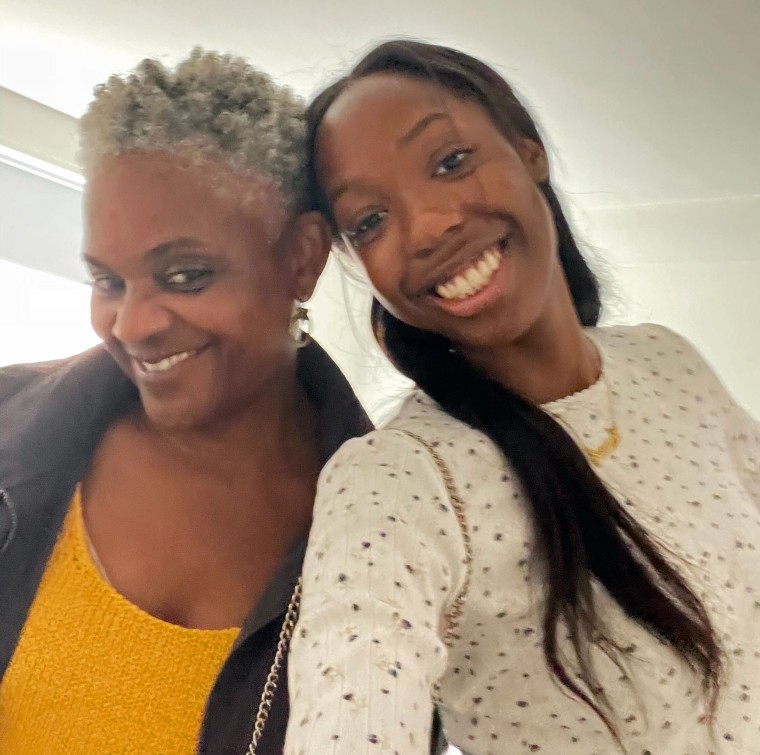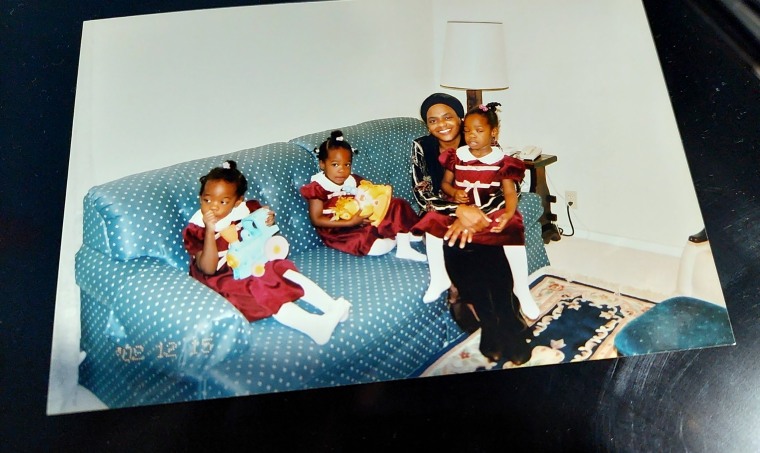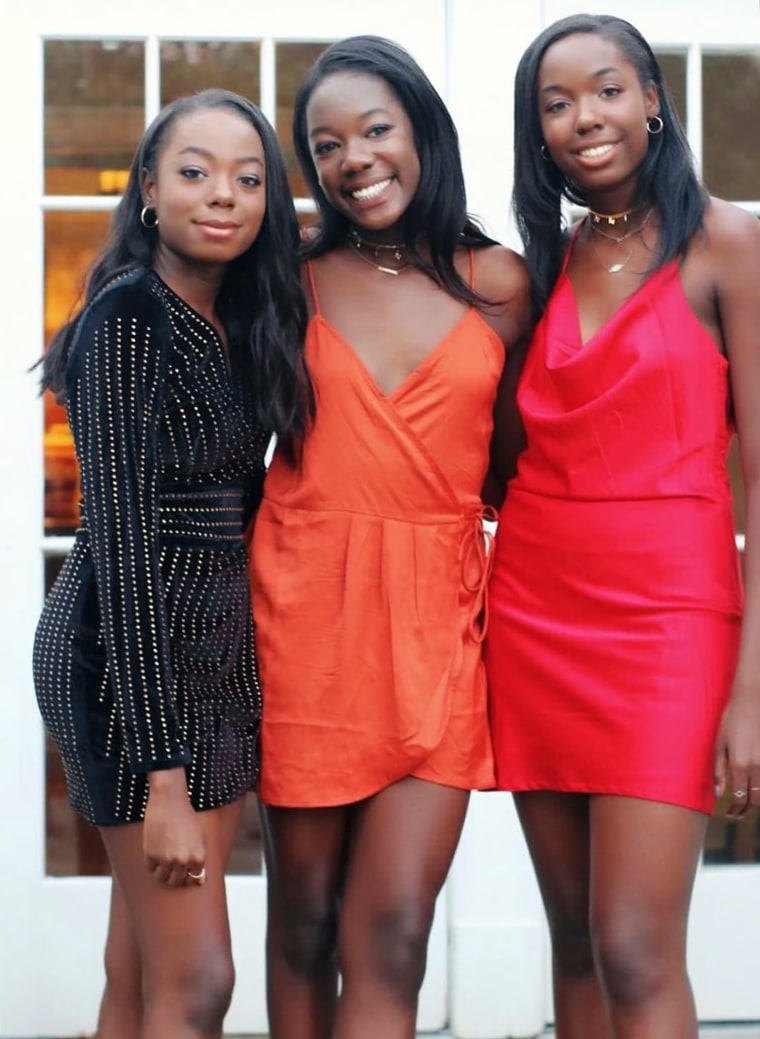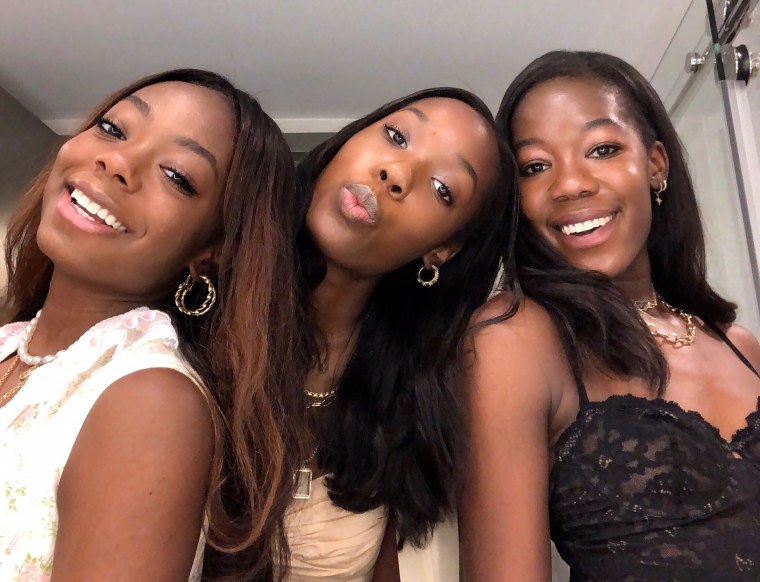Triplet sisters Savannah, Samantha and Sydney Harper found out at age 19 that they were not biologically related to their mother, a revelation that tested — and ultimately strengthened — their family relationship.
One night three years ago, Sydney and Savannah, now 22, were watching a TV show with their mother, Bernadette Harper, in which a woman found out she was not related to her father after taking a genetic test.
The girls couldn't believe something like that could happen. Then they saw the color drain from their mother's face.
Bernadette, 62, told TODAY Parents she knew in that moment that it was time to have the conversation with her children that she had always dreaded.
Two decades prior, she had used an egg donor to conceive her daughters through IVF (in vitro fertilization). She and her husband had told no one. The girls are biologically related to their father; they were conceived with an egg from a donor born in Kenya.
After struggling with infertility, Bernadette said, she didn't want to tell people how her daughters were conceived.
“It’s upsetting and hurtful to go through all these negative pregnancy tests,” she said. “You feel defeated.”

At first, the girls were shocked. Then, they were upset.
“Honestly I was sad that (me and my mom) weren’t biologically related. Who doesn’t want to be biologically related with their mom?” Samantha said.
Sydney recalled feeling angry at being kept in the dark.
“I felt like it didn’t need to be a secret,” she said.
Savannah didn't feel much of a reaction at first, but then the news sunk in.
“I didn’t really think that deeply into it, but as we got through the night, I was like, ‘OK, I’m actually mad.’ And then I went from being mad to sad,” Savannah said.
The girls grappled with their newly discovered heritage from their biological mother’s side. The egg donor was a Kenyan native living in the United States.
Growing up in a predominantly white area in Cleveland, Ohio, Samantha said it was not until college that she fully embraced her identity as a Black American. At first, the girls were hesitant to explore their Kenyan heritage out of fear that it would hurt their connection with their mother.
“It’s just a continual process of figuring out what you’re comfortable knowing and what you don’t want to know,” Sydney said.

The girls said there were moments in their life that had foreshadowed their Kenyan heritage. Once when they were doing a school project, their mother had urged them to represent Kenya as a country, saying they had family roots there but not explaining further.
“I think it all ties together. And it makes sense because I never thought I looked like my mom anyway,” Sydney said.
The triplets consider it a blessing that they had each other to navigate the process of rediscovering their identity. Although they attended universities in different states, the girls said they relied on one another for support.
“I just couldn’t imagine learning about myself by myself because obviously there’s a lot of self-discovery that comes with learning that you have a different genealogy from one of your parents,” Samantha said. “It was just nice to have someone to even call.”
The girls said discovering their genealogy ultimately strengthened their relationship with their mother. Knowing about her battle with infertility gave them a new appreciation for her.
“I realized there’s so much about my mom that I didn’t know,” Samantha said.
The sisters shared their experience on their podcast, "Third Party," hoping that their story would help others.
“I have never felt the need to hide things from my mom,” Savannah said. “I feel like a lot of that is because she encourages us to have open conversations and truly wants to know how we feel or think about different things.”

Bernadette continues to support her daughters as she encourages them to explore their newly discovered genealogy in ways that feel natural to them.
“I feel like this is their story,” Bernadette said. “It’s their life and their story.”
So far, none of the girls have tried to reach out or discover more about the egg donor who helped give them life. They say the experience has taught them that family is determined by more than genes.
“I know sometimes family are people you choose and then other times they’re just the people you’re related to,” Sydney said. “Now I just see family as the people who you can be yourself with, who love you and give you that care.”
